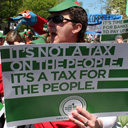
Over the past few weeks, the essays in the Our Inequality series have developed a historical explanation for our growing divide. The introduction discounted the importance of the “usual suspects” in this story: globalization, technology, and demography. (Because these trends …
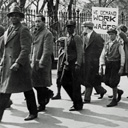
Concluding our nine-part series on inequality, a crash course in the last 100 years of U.S. fiscal and monetary policy, from the creation of the Fed to the Phillips curve to the modern-day bloodletting known as austerity.

Between 1965 and 2000, CEO compensation grew by about 2500 percent, while worker compensation inched up only about 30 percent. This is a market malfunction, a democratic disaster, and a key driver of inequality, as the political currents that eroded the bargaining power of ordinary Americans have also buoyed the incentive and the opportunity of the richest 1 percent to pad their incomes.

It’s no secret by now that the recent spike in American inequality, and the gains rapidly accruing to the wealthy, are driven in large part by “financialization.” Over the last generation, financial services have expanded not with economic growth, but with stagnation and crisis—and their spectacular rise has accounted for about half of the decline in labor’s share of national income. How did things get this bad?

The tax system offers us a detailed and damning description of American inequality and, just as importantly, promises to do something about it. But the American system of public finance has always been weak and fragmented, and three decades’ worth of tax cuts haven’t helped.
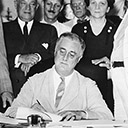
The American welfare state is widely regarded as a poor cousin to those of its democratic peers. As the most unequal wealthy country, the United States also does the least to address that inequality through public policy—despite strong historical and international evidence that social spending programs can drastically reduce inequality.
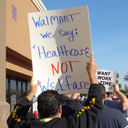
American inequality is driven not just by the uneven distribution of wages, but also by the uneven distribution of job-based benefits. More than any other country, the United States relies on private employment and private bargaining to deliver basic social benefits—including health coverage, retirement security, and paid leave. The results—on any basic measure of economic security—have been dismal.
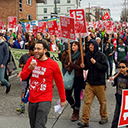
Labor standards are a key buffer against inequality, setting both an economic and ethical floor. But, on both scores, the current minimum wage offers a pretty shaky floor. Its value—in historical and international terms—is meager; its coverage is uneven; and it is poorly enforced. How did we get here?

Under the New Deal order, unions not only sustained prosperity but ensured that it was shared. Since the 1970s, however, the attack on unions has reversed these gains. Today, both union membership and inequality stand roughly at 1920s levels.
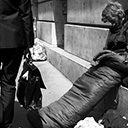
Inequality is greater now than it has been at any time in the last century, and the gaps in wages, income, and wealth are wider in the United States than in any other democratic and developed economy. Yet we lack a clear and compelling account of how and why we arrived this point. Our current economic troubles have aimed a spotlight at our inequality problem, but they did not create it. What did?















